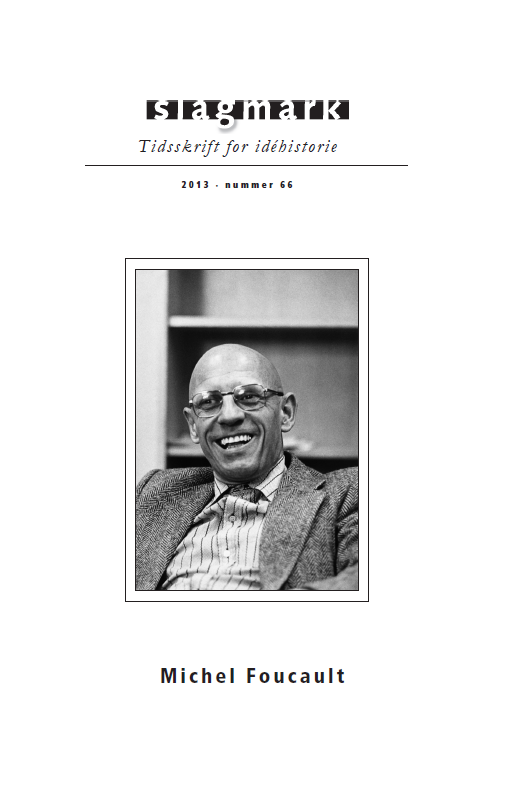Esistensens nøgne hjerte og tragiske splittelse - Michel Foucaults idéhistoriske vending som kritisk radikalisering af den eksistentielle tradition
DOI:
https://doi.org/10.7146/sl.v0i66.104229Nøgleord:
Michel Foucault, Binswanger, existential analysis, psychology, existenceResumé
According to the standard interpretation of Foucault’s intellectual biography, Foucault’s real theoretical development begins in the 1960’s after he has made a break with his youthful infatuation with Ludwig Binswanger’s approach to existential analysis. This article will attempt to challenge the conventional interpretation of Foucault’s turn from the field of existential psychology to the field of history of ideas by not decoding it as based in a radical break with Ludwig Binswanger’s project. Rather, the thesis is that Foucault’s intellectual development can be described as an attempt to reconfigure the approach of existential analysis through a critical radicalization of Binswanger’s project as well as of the existential tradition as such. By examining the role that the study of existence plays in Foucault’s discussion of dreams and madness in the period from 1954 to 1962, it is therefore the ambition to situate Foucault’s intellectual turn in the existential tradition.
Downloads
Publiceret
Citation/Eksport
Nummer
Sektion
Licens
Ophavsretten til artiklerne i Slagmark deles mellem forfatter og Forlaget Slagmark.
Artikler og tekstmateriale publiceret i Slagmark må citeres, downloades og videresendes for ikke-kommerciel brug, under forudsætning af normal akademisk reference til forfatter(e) samt tidsskrift, årgang, nummer og sider.
Brug og distribution af tekstmateriale både i form af papirkopier og elektroniske kopier, til undervisningsbrug på uddannelsesinstitutioner og intern brug er tilladt efter aftale med Copydan Tekst & Node. Brugen skal ske inden for aftalens rammer.
Artikler og tekster må kun genudgives med eksplicit tilladelse fra forfatter(e) og tidsskriftet med en anerkendelse af værkets første publicering i nærværende tidsskrift.





